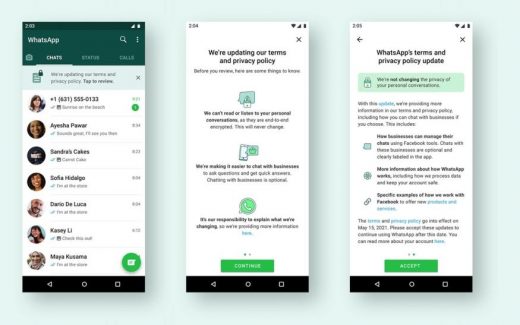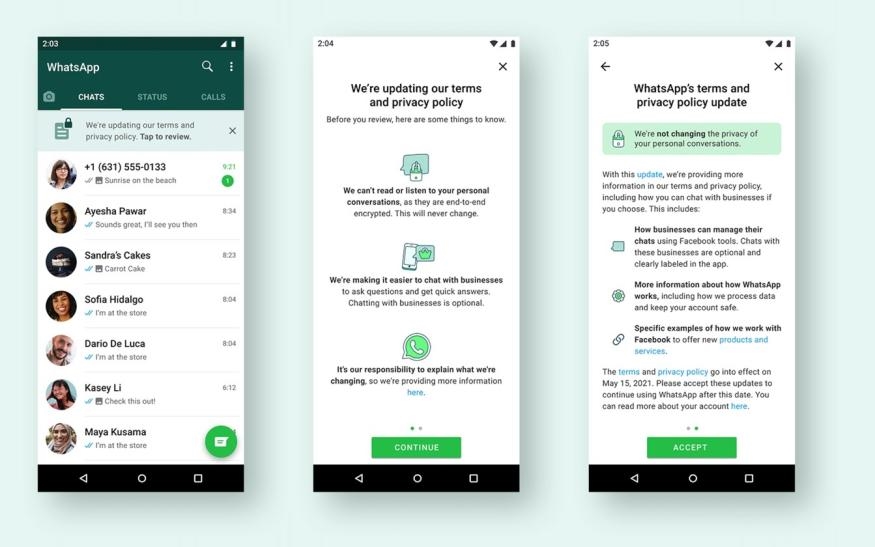WhatsApp will make it easier to reject updates to its terms of service
WhatsApp will re-introduce controversial new privacy policy
WhatsApp plans to re-introduce the updated privacy policy that ignited a massive backlash against the Facebook-owned messaging app. The company said it will notify users of the new privacy policy “in the coming weeks,” and provide more information about the changes before requiring users to agree to the new terms.
“In the coming weeks, we’ll display a banner in WhatsApp providing more information that people can read at their own pace,” WhatsApp writes in a blog post. “We’ve also included more information to try and address concerns we’re hearing. Eventually, we’ll start reminding people to review and accept these updates to keep using WhatsApp.”
The privacy policy is the same one the company introduced in January, a rollout it later postponed amid a growing backlash. A WhatsApp spokesperson confirmed that users will ultimately have to agree to the new terms by May 15, when the new policy goes into effect.
The updated privacy policy addresses Facebook’s recent push into commerce. For WhatsApp, this has meant an expansion of the app’s business messaging tools and the addition of new shopping features within the app. The new terms more explicitly address the role Facebook plays in enabling these interactions. As The New York Times pointed out last month, this could result in interactions with businesses on WhatsApp influencing the ads you see on Facebook.
But the fact that WhatsApp sprung the changes on users without warning, and general distrust of Facebook, turned out to be a perfect recipe for widespread “misinformation” and “confusion”. Many users interpreted the update as WhatsApp strong-arming users into sharing more data with Facebook without the possibility of an opt-out. (Again, as The Times noted in January, the reality is Facebook already had the ability to gather “a lot of information from what people do on WhatsApp.”)
Whether the new messaging will be enough to repair the damage that was already done is less clear. The fallout resulted in a surge of interest in alternative messaging apps, like Signal and Telegram. In its blog post Thursday, WhatsApp addressed the renewed interest in competing services, saying that “we understand some people may check out other apps.” But the company also implied that these services may be less “reliable and safe” than WhatsApp.
“Other apps say they’re better because they know even less information than WhatsApp,” the company said. “We believe people are looking for apps to be both reliable and safe, even if that requires WhatsApp having some limited data.”
(16)




